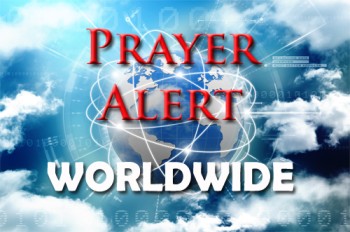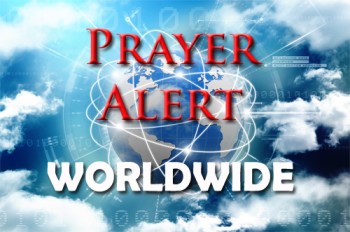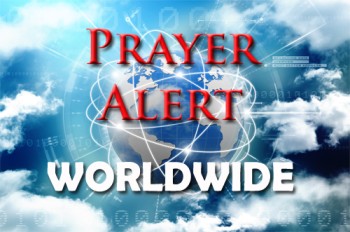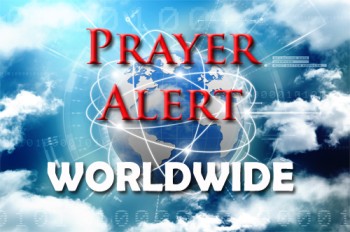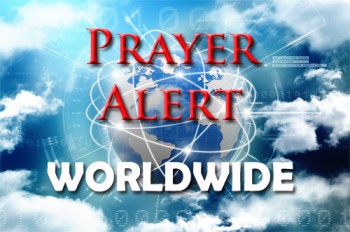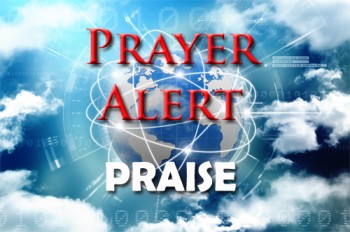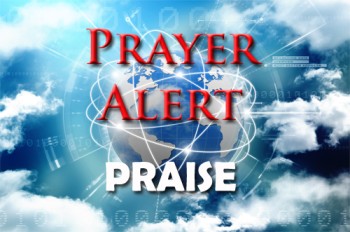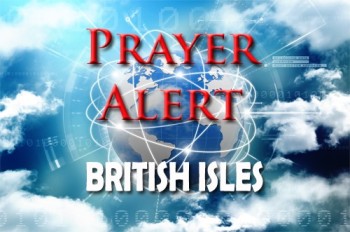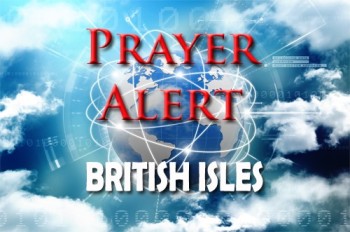
David Fletcher
David Fletcher is Prayer Alert’s Editor.
He is part of a voluntary team who research, proof-read and publish Prayer Alert each week.
If you would like to make a donation towards our running costs, please click here.
The Senate in Florida has passed a bill to ban most abortions after six weeks of pregnancy. The ‘Heartbeat Protection Act’ would prohibit physicians from knowingly performing or inducing a pregnancy termination after the gestational age of the foetus is over six weeks, as opposed to 15 weeks at present. Last year the state’s governor signed a law which bans abortion after 15 weeks, with no exception for rape or incest. It is being challenged in Florida’s supreme court. A decision is not expected until May. The Heartbeat Protection Act provides ‘an exception if the woman obtaining the abortion is a victim of rape, incest or human trafficking, subject to certain conditions’. Two Republicans joined all Democrats in voting against the legislation. The bill is expected to have the legislation signed, and Republicans are expected to pass their own version of the bill in the coming days.
8% of China’s population is Christian and Christianity is established in every province, but many do not have enough Bible knowledge. Rural areas still have a shortage of Bibles and Christian teaching. Pray for wise, godly leadership to be multiplied at every level in the Church and for Christians to be part of shaping China as the nation amasses wealth and political influence. The Church has many mature leaders, but needs more as the church grows. Pray for Christians to have integrity in a culture where corruption is a temptation. 200 years ago, Napoleon Bonaparte said, ’Let China Sleep, for when she wakes, she will shake the world.’ This is being realised as China’s church is awakened by God’s Spirit. Pray for this to be a significant Christian movement with continuing growth. China is a significant global power, economically and militarily, pray for wise leaders to walk a path of peace.
Most Muslims fall into one of two camps - Sunni or Shia. The term Sunni means laws and comes from the word ‘sunnah,’ which means ‘way of life’. This refers to the way of life of the Prophet Mohammad. 90% of Muslims around the world are Sunni. A movement of the Gospel among Sunni Muslims could impact nearly the entire Muslim world. Today, God is doing just that. He is drawing unprecedented numbers of Sunni Muslims to Himself in every region of the world. More Muslims have turned to follow Jesus in the past fifteen years than in the previous 1,400 years combined. But there are still 1.8 billion Muslims living without a saving relationship with Jesus Christ. Ramadan ends on April 21. During Ramadan, Muslims have been intentionally seeking God through prayer and fasting. Pray for an incredible number of Muslims to encounter their Saviour Jesus.
The military junta in Myanmar has carried out its deadliest attack yet on civilians in rebel-held areas. It bombed a meeting of community leaders, killing about 100, including 30 children. The junta has increasingly used airstrikes to crush resistance since it seized power in 2021, often targeting schools and clinics run by the opposition. Myanmar’s military is losing against armed ground battles that have sprung up since the coup, so they are increasingly relying on airstrikes, targeting the most vulnerable. The whole country is up in arms, and every single community is involved in some kind of armed resistance against this military dictatorship. So they are trying to terrorise the civilian populations into submission with mass arrests, torturing prisoners, beheading civilians, and media repression. Graphic images posted online and verified by Al Jazeera and other media show burning limbs at the recent bomb scene. The UN warns of worsening human rights violations across Myanmar.
Severe tropical cyclone Ilsa has intensified to a category five system and will hit Port Hedland late at night on 13 April. A red alert has been issued across the region. Northern Australia is no stranger to cyclones, but this storm will be the strongest to hit the region in fourteen years. The very destructive core of the storm will bring extreme wind gusts of 195mph, 15.7 inches of rain and abnormally high tides, with the storm's impact felt across a 370-mile region. The Meteorology Bureau said, ‘There is a threat to lives and homes. You are in danger and must act immediately.’ Port Hedland’s 15,000 residents have been ordered to shelter inside, staying away from doors and windows. ‘It is too late to leave. Stay indoors until the authorities give the all clear’, the red alert warning states. Pray for those unable to get to evacuation centres, for those in remote communities, and for the frail and elderly.
Less than 2% of deaf people follow Jesus. A new form of sign language technology can now transform presenting Scripture to a deaf person. ‘Chameleon’ features a digital avatar, or animated character, signing the Bible to the viewer. Chameleon technology offered by Wycliffe Bible Translators and global partners transcends race and culture. ‘As a white man, if I sign the Bible to another culture, I don't want that culture to think the Scripture is merely “the white man's beliefs”.’ The avatar can be converted to the local nationality, making the translator's appearance anonymous. Filming someone signing the gospel in one of these countries can be dangerous. The avatar allows Christian sign language to be presented in countries unfriendly to the Bible while protecting the person responsible for the translation. A win for the deaf community, taking Bible translation to the next level.
Blac Chyna (real name Angela White), the popular OnlyFans model, shut down her $240 million porn channel when she became a Christian. Her conversion is significant because of the influence she had over millions of teens and her exposure of the manipulative nature of influencers. Angela is one of many ‘influencers’ discovering the hollow core of lavish lifestyles of sin and turning to Jesus. ‘God said, you don’t need to be doing this, I didn’t put you here, to degrade yourself’, she says on social media. ‘I’m just going by faith. Just letting God lead me. I have my church home helping me along.'
‘I served in Ukraine alongside those who risk their lives preaching the Gospel, delivering humanitarian aid, and evacuating people. Many opened their hearts to Christ everywhere I preached. I have never seen such a hunger for God in any other country. We were going to the churches where the Ukrainian pastor with us had been delivering pastoral care until Russians beat him almost to death. In my heart I carried the word I received from the Lord for the people of Donbas, where the war had continued for nine years: “The people who were sitting in darkness saw a great Light, and those who were sitting in the land and shadow of death, upon them a Light dawned”. It was there in Donbas that I saw how powerful prayer is, how powerful God’s protection is, and how great a desire for salvation the Holy Spirit can arouse in people.’
The authorities that exist are established by God (Romans 13:1). Pray for the King, Prime Minister, first ministers and all those in national and local government to have heaven’s wisdom. Pray that parliamentarians promote good and restrain evil. Marriage is a creation ordinance given by God for the good of all people. Genesis 2:24 says, ‘A man will leave his father and mother and be united to his wife; they will become one flesh’.’Pray that churches faithfully uphold the Bible’s teaching on marriage and sexual ethics. Psalm139:14 says, ‘I praise you because I am fearfully and wonderfully made; your works are wonderful, I know that full well.’ Pray that attempts to legalise euthanasia and allow abortion at any stage will fail. There is pressure to move away from God’s instructions for his world. ‘Seek the peace and prosperity of the city to which I have carried you.’ Pray for the UK's repentance and revival.
Peter Murrell, Nicola Sturgeon’s husband, was arrested, questioned for eleven hours and then released pending further investigation into the SNP’s fundraising and finances. Searches were carried out at a number of addresses including his home and SNP offices. The inquiry was launched after complaints about the SNP’s handling of £600,000 in donations raised by the party, ostensibly to campaign for and hold a second independence referendum. It is alleged that the money was used instead to help with the party’s day-to-day running costs. As the investigation is ongoing the police are unable to comment further. A report will be sent to the Crown Office and the Procurator Fiscal Service. On 19 March Murrell resigned after misleading the media about party membership numbers. He had been chief executive since 1999 and was responsible for running the SNP. On 1 April the SNP decided to review its governance and transparency. See

